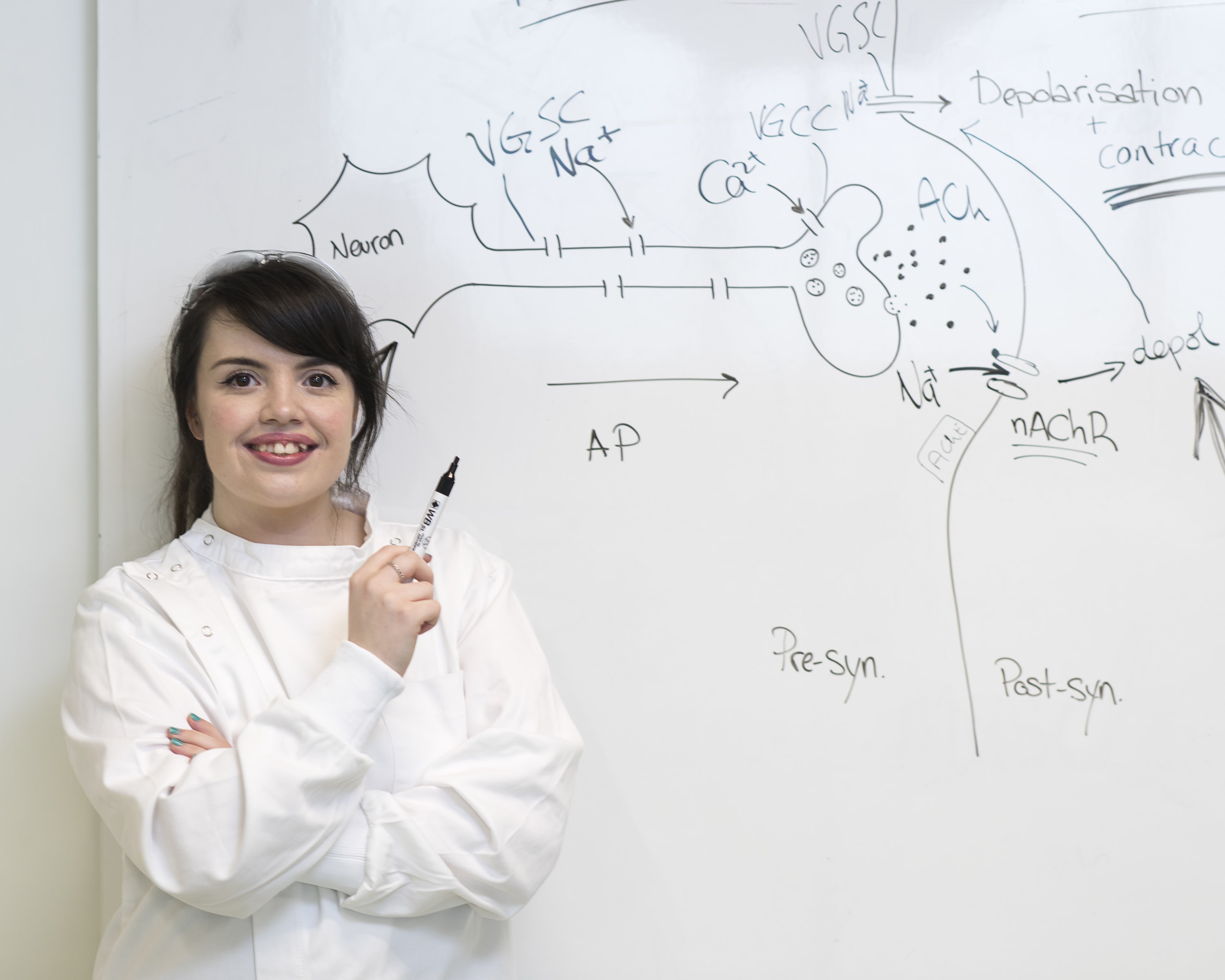Course Information
BSc (Hons) (NFQ Level 8)
Full Time – Undergraduate Studies
CAO Code: DN200
CAO Points Range 2019: 521
Length of Course: 4 Years
Average Intake: 400
- O2/H6 in Mathematics
- O2/H6 in a laboratory science (Applied Mathematics. Computer Science or Geography may be used instead of a laboratory science subject) and
- O6/H7 in English, Irish and two other recognised subjects
- A-Level/GCSE
- Other EU Applicants
- Non-EU Applicants
- QQI FET Entry Routes
- Level 6/7 Progression Routes
Why is this course for me?
Neuroscience is the study of the nervous system, directed towards understanding how cells within the nervous system interact with each other to form the brain and regulate body functions, human behaviour, memory, emotions and consciousness. The malfunction of the nervous system lies at the heart of a number of devastating and currently incurable conditions such as Alzheimer’s and Parkinson’s Disease. Neuroscience research probes the mechanisms underlying such malfunctions, with a view to helping in the discovery of drugs to prevent or manage these disorders.
Career & Graduate Study Opportunities
As a Neuroscience graduate, you’ll have the opportunity to obtain employment in:
- Biotechnology and pharmaceutical companies
- Medical research, including drug development and clinical trials
- Hospital and university laboratories
- Neuroscience research institutes
- Government agencies
Neuroscience graduates also pursue graduate studies at MSc or PhD level. PhD programmes in Ireland and abroad cover areas as diverse as biotechnology, cell biology, and biomedical and health science. Many graduates also pursue graduate medicine and graduate pharmacy courses.
What Will I Study
This is a sample pathway for a degree in Neuroscience. Topics include membrane biology, developmental neuroscience, higher cortical function, synaptic plasticity, sensory neuroscience, as well as core modules in biomolecular and biomedical science.
First Year
- Biology
- Chemistry
- Mathematics
- Optional Science modules
- Elective modules
Second Year
- Neuroscience
- + 2 Other Science Subjects
- Elective modules
Third Year
- Neuroscience
- Elective modules
Fourth Year
- Neuroscience (includes a research project in topics such as neurodegenerative diseases, cognition and synaptic plasticity)
All Science courses are full time, with many student timetables running from 9.00am to 5.00pm or later. Depending on the subject choices, a weekly timetable can include lectures, practicals and tutorials.
Assessment varies with each module but may comprise continuous assessment of practicals, written exams and online learning activities.
Professional Work Experience
A limited number of opportunities exist in second and third year to gain additional laboratory experience during the summer. Funded schemes are organised by public and private bodies, e.g. the Irish Health Research Board and The Wellcome Trust (UK). In addition, occasional opportunities arise within individual research groups.
International Study Opportunities
A limited number of Fourth Year projects are available in the Faculty of Pharmaceutical Sciences of the University of Copenhagen, Denmark; the Institute of Biochemistry and Pathobiochemistry, Ruhr University Bochum; and in the Max Planck Institute for Brain Research, Frankfurt.
Testimonial
“DN200 Science allowed me tailor my degree to encompass all the aspects of science I need in order to succeed while keeping me intrigued and excited along the way. In third year, I was lucky to partake in the Erasmus Programme at the University of Nottingham which gave me a different insight into the scope of neuroscience and the opportunities it presents. UCD offering multiple opportunities to travel and learn really highlights their dedication to offering the best possible education and to encouraging us to develop as a person! In addition, I had the absolute privilege of doing a 6-month thesis project in The Max Planck Institute for Brain Research, which allowed me to work as a real scientist in a lab, something I see myself doing in the future.”
Jodie Bermingham Student

